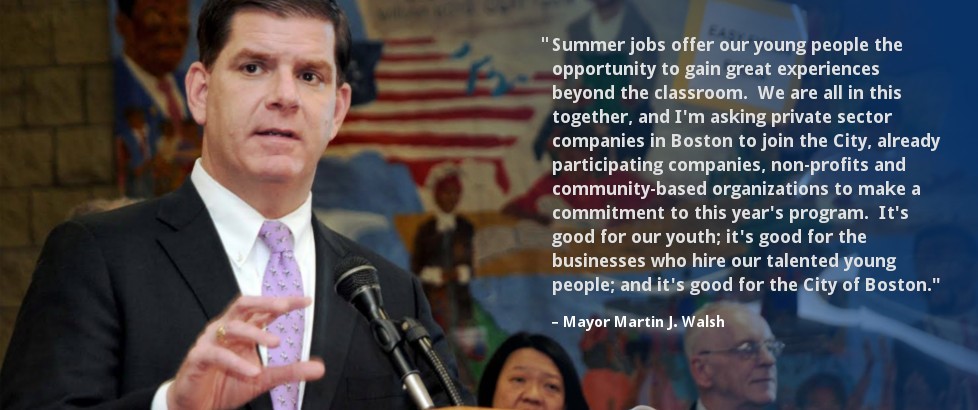
Over the past several decades the labor market has become more competitive as employer expectations for a variety of skills have risen. These hurdles make it hard for many young people, particularly those with weak school and work records, to enter and move up in the labor market. My work in this area has brought attention to the importance of declining youth labor market attachment and has demonstrated the effectiveness of various interventions. Roughly one-third of U.S. teens aged 16 to 19 years are currently working, and more than half of unemployed teens report that they are looking for their first job, suggesting that there may be fewer pathways for teens to enter the labor market (Dennett & Modestino, 2013).
I use an embedded randomized controlled trial to assess the impact of early work experience provided by the Boston Summer Youth Employment Program (SYEP) on the economic, academic, and criminal justice outcomes of low-income inner-city youth. I find that in the short-term, the program significantly increases job readiness skills, boosts postsecondary aspirations, and enhances social skills and community engagement among participants during the summer (Modestino and Paulsen 2018). During the 17 months after participating in the program, youth in the treatment group exhibited significant reductions in arraignments for violent crimes (-35 percent) and property crimes (-29 percent) (Modestino 2019).
Subsidized summer jobs programs also have important impacts on academic outcomes. For example, SYEP lottery winners are 4.4 percentage points more likely to graduate from high school on time and 2.5 percentage points less likely to drop out of high school during the four years after participating in the program relative to the control group. These improvements appear to be driven by better attendance and course performance in the year after being selected for the program, with the program’s impact on attendance persisting into the second year. Survey data suggest that the Boston SYEP may affect academic outcomes by increasing aspirations to attend college, gaining basic work habits, and improving social skills during the summer. More recent work shows that private sector job experience in particular increases the likelihood that students take the SAT and enroll in college with a shift from 2-year to 4-year institutions (Modestino, Paul, and McLaughlin 2022).
During the COVID-19 pandemic, these research findings were used by the City of Boston to justify an additional $4.1 million of CARES Act funding to develop both in-person and virtual opportunities that provided similar skill development as prior years, with the explicit intention of reducing crime and providing greater opportunity among low-income youth of color.
PEER REVIEWED JOURNALS
Published, In-Press, or Accepted
Modestino, A., Paul, U. † and McLaughlin J. 2022. What's In a Job? Evaluating the Effect of Private Sector Job Experience on Students' Academic Outcomes. AEA Papers and Proceedings (forthcoming).
[Publication]
[Pre-print Version]
[Online Appendix]
Media Coverage: New York Times [2021], CNBC [2021], NBC News [2021], Financial Times [2021], Time Magazine [2021]
Modestino, A., & Paulsen, R.† 2022. School’s Out: How Summer Youth Employment Programs Impact Academic Outcomes. Education Finance and Policy (forthcoming).
[Publication]
[Pre-print Version]
[Online Appendix]
Media Coverage: Bloomberg [2020], Boston Globe [2020], NPR [2020], WBUR [2020]
Modestino, A. 2019. How Do Summer Youth Employment Programs Improve Criminal Justice Outcomes, and for Whom? Journal of Public Policy Analysis and Management, 38(3): 600-628
[Publication]
[Pre-print Version]
[Online Appendix]
Media Coverage: Wall Street Journal [2018], Politico [2017], Christian Science Monitor [2017], WBUR Radio Boston [2017], FOX25 News [2017], WBUR Morning Edition [2017]
Modestino, A., Sederberg, R.†, & Tuller, L.† 2019. Assessing the Effectiveness of Financial Coaching: Evidence from the Boston Youth Credit Building Initiative. Journal of Consumer Affairs, 53(4): 1825-1873.
[Publication]
[Pre-print Version]
[Online Appendix]
Media Coverage:WCVB [2019]
Modestino, A. and *Paulsen, R. 2019. Reducing Inequality Summer by Summer: Lessons from the Boston Summer Youth Employment Program Survey. Evaluation Program and Planning, vol. 72, pp. 40-53.
[Publication]
Media Coverage: Boston Globe [2016], WNPR Connecticut Public Radio [2015], NPR Marketplace [2015], Bloomberg [2015], CNBC [2015], Wall Street Journal [2015]
INVITED ARTICLES
Ross, M., Modestino, A., Saroui, S., and Cope, R. 2021. To “build back better,” we must connect young people to jobs and education. The Avenue, Brookings Institution, May 20.
[Publication]
Modestino, A. 2020. Saving Summer Jobs: How Summer Youth Employment Programs Improve Youth Outcomes during COVID-19. MassBenchmarks Journal, 22(1).
[Publication]
Modestino, A. 2018. Why More Cities Should Offer Summer Jobs for Teens. Harvard Business Review, August 28, pp. 1-7.
[Publication]
Modestino, A. 2018. How Can Summer Jobs Reduce Crime Among Youth? Report, Brookings Institution, January.
[Publication]
Modestino, A. 2017. How Do Summer Youth Employment Programs Improve Criminal Justice Outcomes, and for Whom? Federal Reserve Bank of Boston, Community Development Discussion Paper No. 17-01.
[Publication]
PUBLIC POLICY REPORTS
Modestino, A. and Ben Forman. Pathways to Economic Mobility: Identifying the Labor Market Value of Community College in Massachusetts. The Boston Foundation, Understanding Boston report series, June 10, 2021.
[Publication]
Media Coverage: WBUR [2021]
Modestino, A., Sederberg, R., Tuller, L. 2019. An Evaluation of the Boston Youth Credit Building Initiative: Final Report. Office of Financial Empowerment, City of Boston, (forthcoming).
[Publication]
Modestino, A. Morikawa, M., and Nguyen,T. 2017. Reducing Inequality Summer by Summer. Office of Workforce Development, City of Boston, December
[Publication]
Modestino, A., Sederberg, R., Tuller, L. 2017. An Evaluation of the Boston Youth Credit Building Initiative: Baseline Report. Office of Financial Empowerment, City of Boston, May.
[Publication]
Modestino, A. and Nguyen, T. 2016. The Potential for Summer Youth Employment Programs to Reduce Inequality: What Do We Know? Federal Reserve Bank of Boston, Regional and Community Outreach Issue Brief 16-03.
[Publication]